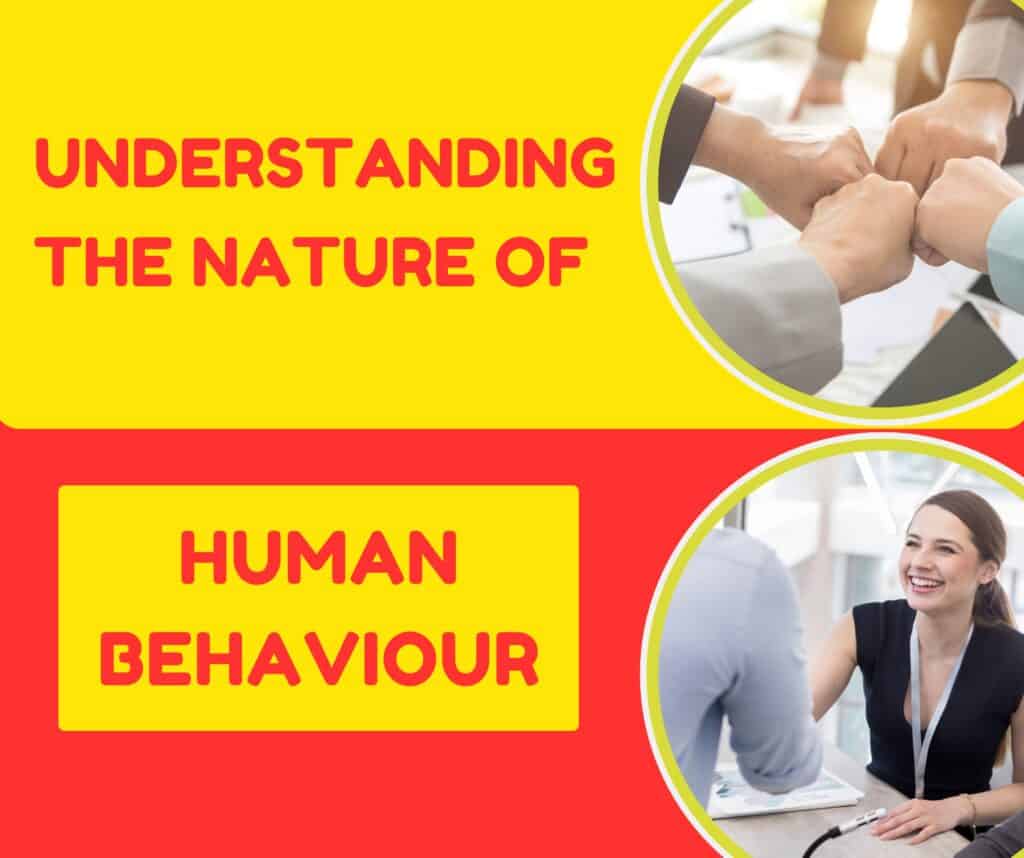Values and beliefs are fundamental aspects of who we are as individuals and how we interact with the world around us. They serve as the foundation for our thoughts, actions, and decision-making, guiding our behavior in both personal and social settings. While values represent the deeply held principles that define what we deem important or worthwhile, beliefs are the convictions or assumptions we accept as true, shaping our perceptions and worldviews.
Values are essentially our moral compass, helping us distinguish right from wrong. They are shaped by a combination of personal experiences, cultural influences, upbringing, and societal norms. Examples of values include honesty, respect, fairness, and loyalty. These core principles play a vital role in determining how we prioritize various aspects of life, such as relationships, career choices, and life goals.
Beliefs, on the other hand, refer to the assumptions or ideas that we accept as truth. They can be influenced by religion, personal experiences, education, and environment. Beliefs can range from faith-based convictions to political ideologies, to views on life, happiness, and success. These beliefs influence how we interpret events, how we perceive others, and how we navigate the world.
The importance of values and beliefs lies in their ability to influence not just individual actions but also societal dynamics. On a personal level, living in alignment with one’s values often brings a sense of purpose, fulfillment, and inner harmony. In social contexts, shared values and beliefs help shape cultures, communities, and relationships. They provide a framework for how people relate to one another, determine acceptable behavior, and foster cooperation or conflict.
This article will delve deeper into the definitions of values and beliefs, explore their interconnection, and examine how they impact various aspects of life, including personal development, relationships, and society at large. We’ll also discuss how values and beliefs evolve over time and provide tips for understanding your own values and beliefs more deeply.
By the end of this article, you’ll gain a clearer understanding of how these internal guiding forces shape not only your life but also the world around you.
The key to success is starting. Click here to start your business today!
Try Wealthy Affiliate (For Free).
What Are Values?
Values are the deeply held principles and standards that shape our attitudes, behaviors, and life choices. They serve as the internal compass that guides how we interact with others, make decisions, and navigate various situations in life. While they often reflect our moral and ethical foundations, values can vary greatly from person to person depending on cultural background, upbringing, and life experiences.
Definition of Values
At their core, values are the beliefs that we hold as important or desirable. They represent the qualities, standards, or ideals that we strive to live by and use to measure the worth of actions or outcomes. Values can influence everything from our career choices to how we maintain relationships, as they provide a framework for understanding what matters most in our lives. Whether consciously or unconsciously, these guiding principles help us evaluate what is right, wrong, fair, or just in different situations.
For example, if someone values honesty, they are likely to prioritize being truthful, even when it may be difficult or uncomfortable. On the other hand, someone who values success might make decisions that prioritize achievement and progress, even at the cost of other factors.
Core Principles and Standards that Guide Behavior
Values are essentially the standards by which we judge both our own actions and the actions of others. They provide structure to our behavior by helping us make choices that align with what we believe is right or important. Our values influence how we approach challenges, the goals we set for ourselves, and how we interact with others on a daily basis.
For instance, if you value kindness, you are more likely to approach conflicts with compassion and seek peaceful resolutions. If you value ambition, you may focus heavily on personal and professional development. These principles guide not only individual actions but also how communities and societies function. Shared values often lay the foundation for social harmony, as they encourage mutual respect and cooperation.
Types of Values
Values can be categorized into different types, each influencing different aspects of our lives. While everyone’s set of values may be unique, they typically fall into these broad categories:
1. Personal Values
Personal values are the principles that define who we are as individuals. They reflect our individual beliefs about what is important in life and guide how we choose to live on a day-to-day basis. Some examples of personal values include:
- Honesty: Being truthful and transparent in your dealings with others
- Integrity: Upholding strong moral principles, even when no one is watching
- Loyalty: Standing by others through thick and thin, whether in personal or professional relationships
- Self-Discipline: The ability to stay focused and consistent in pursuing goals
Personal values often determine how we view success, fulfillment, and happiness, as they form the basis for the decisions we make throughout our lives.
2. Cultural Values
Cultural values are the collective values shared by a group of people, often passed down through generations. These values shape traditions, customs, and behaviors within specific communities or societies. Cultural values provide a sense of identity and belonging, as they reflect the shared beliefs that unite people within a particular culture. Some examples of cultural values include:
- Respect for Traditions: Honoring and preserving long-established customs and practices
- Collectivism: Prioritizing the needs of the group over the needs of the individual, common in many Eastern cultures
- Hospitality: A deep-rooted value in many cultures, encouraging generosity and welcoming others into one’s home
- Respect for Elders: Valuing the wisdom and experience of older generations, a key principle in many cultures
Cultural values shape how people interact with each other and their environment. They influence societal norms, ceremonies, and even the way decisions are made within the group.
3. Societal Values
Societal values are the overarching principles that define what is considered just, fair, and beneficial for the collective good of a society. These values often form the foundation for laws, policies, and social standards. While they may be influenced by both personal and cultural values, societal values are focused on the well-being of the community or nation as a whole. Some examples of societal values include:
- Justice: The principle of fairness, ensuring that everyone is treated equally and has access to their rights
- Equality: The belief that all individuals, regardless of background, gender, or race, deserve equal treatment and opportunities
- Freedom: Valuing the autonomy of individuals to make their own choices and express themselves
- Environmental Responsibility: Recognizing the importance of sustainability and preserving natural resources for future generations.
What Are Beliefs?
Beliefs are the convictions, assumptions, or ideas that we hold to be true. They form the lens through which we perceive the world and influence how we interpret our experiences, make decisions, and interact with others. Beliefs are more than just opinions—they are deeply held convictions that often shape the core of our identity. They can be rooted in personal experiences, cultural upbringing, education, and religious or philosophical teachings.
Definition of Beliefs
At its core, a belief is something we accept as true, even if it cannot always be proven or verified. It is a mental attitude that reflects a person’s understanding of reality. Beliefs guide how we think and feel about the world, how we react to various situations, and how we engage with others.
For example, a belief in hard work as the key to success will shape one’s approach to challenges, encouraging perseverance and dedication. On the other hand, a belief that fate controls one’s life may lead to more passive behavior, accepting circumstances as beyond one’s control.
Beliefs are powerful motivators. They can inspire action, influence behavior, and even shape entire communities when shared by a large group. While some beliefs are based on factual evidence, others are based on faith, intuition, or cultural influence.
Convictions or Acceptances That Something Is True or Exists
Beliefs are fundamentally convictions—strong mental assertions about what we hold to be true or real. These convictions often form without requiring concrete proof. For example, someone may have a firm belief in the existence of a higher power, even though they cannot provide scientific evidence for their belief.
Beliefs also represent what we think to be possible or real, such as the belief in the power of love, justice, or compassion. Many beliefs remain deeply ingrained, even when confronted with conflicting evidence. This resilience is because beliefs are tied to our identity, emotions, and understanding of the world around us.
Beliefs serve as a cognitive framework that helps us make sense of life’s complexities. They influence our behaviors, choices, and how we respond to situations. For example, if you believe that the world is a dangerous place, you might approach new experiences with caution. Alternatively, if you believe that people are inherently good, you may be more trusting and open to forming new relationships.
Types of Beliefs
Beliefs come in various forms, often influenced by religious, cultural, philosophical, or personal experiences. Let’s explore some of the most common types of beliefs:
1. Religious Beliefs
Religious beliefs are faith-based convictions that relate to spirituality, divine existence, and moral codes prescribed by religious traditions. These beliefs often provide people with a sense of purpose, guidance, and an ethical framework for living. Religious beliefs are usually passed down through generations and form a significant part of many cultures around the world.
Examples of religious beliefs include:
- Belief in a Higher Power: Many religions teach the existence of a deity or multiple deities, such as God in Christianity, Allah in Islam, or Brahman in Hinduism.
- Faith in Religious Teachings: Believing in sacred texts or scriptures such as the Bible, Quran, or Torah as sources of divine truth.
- Life After Death: The belief in an afterlife, reincarnation, or spiritual continuation beyond physical death.
- Moral and Ethical Guidelines: Beliefs about what is right or wrong based on religious teachings, such as the Ten Commandments in Christianity or the Five Pillars of Islam.
Religious beliefs can significantly impact behavior, relationships, and how individuals navigate ethical dilemmas. They also provide comfort, community, and a sense of belonging for many people.
Affiliate Disclosure: This post includes affiliate links, meaning I may earn a commission if you purchase through them. These links offer valuable tools and support to help you succeed online.
Try Wealthy Affiliate (For Free).
2. Personal Beliefs
Personal beliefs are convictions formed through individual experiences, upbringing, and self-reflection. These beliefs influence our decisions, relationships, and how we pursue goals. While they may overlap with religious or cultural beliefs, personal beliefs are often shaped by our unique perspectives on life.
Examples of personal beliefs include:
- Political Ideologies: Beliefs regarding how societies should be governed, such as democracy, socialism, or capitalism.
- Health and Wellness Beliefs: Convictions about diet, exercise, and healthcare, such as believing in the benefits of a plant-based diet or natural remedies.
- Beliefs About Success: Ideas about what it means to be successful, whether it’s through career achievement, financial wealth, or personal fulfillment.
- Belief in Human Potential: The conviction that people have the ability to change, grow, and overcome obstacles through determination and effort.
Personal beliefs can be powerful motivators in life. For example, someone who believes in the value of continuous learning may seek out new opportunities to educate themselves, while someone who believes in living sustainably may prioritize eco-friendly practices in their daily life.
3. Philosophical Beliefs
Philosophical beliefs are ideas that deal with the fundamental nature of reality, existence, knowledge, and ethics. These beliefs are often the result of deep reflection and inquiry into life’s big questions, such as the meaning of life, the nature of truth, or what constitutes a “good” life.
Examples of philosophical beliefs include:
- Existentialism: The belief that individuals create their own meaning in life through choices and actions, often associated with thinkers like Jean-Paul Sartre and Friedrich Nietzsche.
- Utilitarianism: The belief that the best action is the one that maximizes overall happiness or well-being for the greatest number of people.
- Stoicism: The belief that individuals should cultivate self-control, resilience, and wisdom in the face of life’s challenges, often associated with ancient philosophers like Marcus Aurelius and Epictetus.
- Determinism: The belief that all events, including human actions, are determined by previously existing causes, suggesting that free will may be an illusion.
The Relationship Between Values and Beliefs
Values and beliefs are intrinsically linked, each profoundly influencing the other in ways that shape individual behavior and societal norms. Understanding this relationship is essential to grasp how people develop their identities, make decisions, and interact with the world around them.
How They Interconnect
Values and beliefs interconnect in a dynamic and reciprocal relationship. At their core, values represent the principles that individuals regard as important, while beliefs are the convictions that they accept as true.
- Values Shaping Beliefs: Values often serve as the foundation for the beliefs we adopt. For example, if someone values honesty and integrity, they are likely to develop beliefs around the importance of truthfulness and ethical behavior. This individual may come to believe that honesty is always the best policy in both personal and professional contexts. In this way, values guide the development of beliefs that align with those principles.
- Beliefs Shaping Values: Conversely, beliefs can influence and even alter an individual’s values. For instance, if someone develops a belief in the necessity of environmental conservation, they may begin to prioritize sustainability as a core value in their life. This shift can lead to adopting new practices, such as reducing waste, supporting renewable energy, or advocating for policies that protect the environment. Here, beliefs act as a catalyst for change, prompting individuals to re-evaluate and modify their values to align with their newfound convictions.
The interplay between values and beliefs creates a complex system of influence that can evolve throughout a person’s life. As experiences shape beliefs, and beliefs reinforce or challenge existing values, individuals constantly negotiate their understanding of themselves and the world around them.
Examples of Influence
To better understand how values and beliefs influence one another, let’s explore some concrete examples:
1. How Cultural Values Influence Religious Beliefs
Cultural values significantly shape the religious beliefs held by individuals within a community. Cultural context often dictates the norms, traditions, and practices that are passed down through generations, forming a collective identity.
- Example: In many Eastern cultures, the value of collectivism—prioritizing the needs and well-being of the community over individual desires—can shape religious beliefs that emphasize harmony, family bonds, and communal responsibilities. For instance, in Buddhism, which is prevalent in many Asian cultures, there is a strong emphasis on compassion and interconnectedness, aligning with cultural values of social harmony and respect for others.
- Example: In contrast, Western cultures often value individualism, which can lead to religious beliefs that focus on personal salvation and individual relationships with a higher power. For instance, Christianity, particularly in the United States, often emphasizes personal faith and individual moral responsibility, reflecting broader societal values of personal freedom and self-determination.
This interaction illustrates how cultural values can frame and influence the beliefs individuals hold, demonstrating the interdependence of values and beliefs in shaping one’s worldview.
2. The Role of Personal Experiences in Shaping Values
Personal experiences play a crucial role in shaping both values and beliefs. The lessons learned through life events, challenges, and interactions can lead to significant shifts in what individuals value and believe.
- Example: Consider someone who grows up in a family that values education. If they face challenges in their academic journey—such as struggling in school or receiving support from a mentor—they may come to believe that hard work and perseverance are vital for success. This belief may then solidify into a core value of striving for excellence and continuous learning in all aspects of life.
- Example: Alternatively, a person who has faced discrimination or injustice may develop strong values around equality and social justice. This experience can foster beliefs in the importance of activism and advocacy for marginalized communities, leading them to dedicate their time and resources to support causes that align with these values.
The Role of Values and Beliefs in Personal Development
Values and beliefs play a critical role in personal development, influencing how individuals perceive themselves, make decisions, and navigate life’s challenges. Understanding the interplay between these two constructs can enhance self-awareness, guide personal growth, and foster meaningful relationships.
Self-Identity and Values
Values are foundational to self-identity, shaping how individuals view themselves and their place in the world. They provide a sense of purpose and direction, helping individuals understand what matters most to them.
- Importance of Aligning Actions with Personal Values: Aligning one’s actions with personal values is essential for authentic living and overall well-being. When individuals act in accordance with their values, they experience a sense of integrity and fulfillment, which contributes to positive self-esteem and a coherent self-identity. Conversely, when there is a disconnect between values and actions, individuals may feel dissonance, dissatisfaction, or even guilt.
- Example: Consider someone who values honesty but finds themselves frequently lying to avoid conflict. This misalignment can lead to feelings of discomfort and anxiety, undermining their self-esteem and self-worth. However, if they choose to communicate openly and authentically, even in challenging situations, they reinforce their value of honesty, strengthening their sense of identity and personal integrity.
- Values as a Guiding Framework: Personal values serve as a compass for decision-making, guiding individuals toward choices that resonate with their true selves. When faced with dilemmas, individuals can refer back to their core values to help clarify what actions will be most fulfilling and aligned with their self-identity.
- Example: An individual who values family might prioritize spending quality time with loved ones over career advancement, even if that means sacrificing some professional opportunities. By making decisions that align with their values, they reinforce their identity as a family-oriented person, leading to greater satisfaction in life.
By understanding and articulating their values, individuals can create a clear sense of self that informs their choices, strengthens their resilience, and fosters deeper connections with others who share similar values.
Beliefs and Behavior
Beliefs are equally significant in shaping personal development, particularly in how they influence decision-making and problem-solving.
- How Beliefs Influence Decision-Making: The beliefs individuals hold can significantly affect the choices they make. Beliefs act as filters through which information is processed and evaluated, impacting judgments and responses to various situations.
- Example: If a person believes that they are capable of achieving their goals through hard work, they are more likely to take on challenges and pursue opportunities for growth. This self-efficacy belief can lead to proactive behavior, resilience in the face of setbacks, and a willingness to step outside their comfort zone. Conversely, if someone holds a belief that they are incapable or destined to fail, they may shy away from challenges, leading to missed opportunities and stagnation.
- Problem-Solving and Coping Strategies: Beliefs also play a crucial role in how individuals approach problems and cope with adversity. Individuals with positive beliefs about their abilities and the world around them tend to employ more effective coping strategies and problem-solving techniques.
- Example: A person who believes that challenges are opportunities for growth is more likely to adopt a problem-solving mindset when faced with obstacles. They may view setbacks as learning experiences, allowing them to adapt and develop new skills. In contrast, someone who believes that challenges are insurmountable may become overwhelmed and disengaged, leading to ineffective coping strategies such as avoidance or denial.
The Impact of Values and Beliefs on Relationships
Values and beliefs significantly shape the dynamics of relationships, both personal and professional. They influence how individuals connect, communicate, and collaborate with one another. Understanding the impact of values and beliefs in these contexts can enhance relationship satisfaction, improve communication, and foster a more inclusive environment.
In Personal Relationships
Values and beliefs play a crucial role in defining the quality of personal relationships, such as friendships, romantic partnerships, and family dynamics. They can either strengthen bonds or create obstacles, depending on their alignment or conflict.
- Shared Values Strengthen Bonds: When individuals share similar values, it often leads to stronger connections and a greater sense of understanding and support. Shared values serve as a foundation for trust, respect, and mutual goals, allowing relationships to flourish.
- Example: In a romantic relationship, couples who value family, honesty, and commitment are more likely to work together toward common goals, such as raising children or supporting each other’s careers. This alignment can lead to increased satisfaction and stability in the relationship, as both partners feel understood and supported in their choices.
- Example: Friendships built on shared values—such as a commitment to social justice or a love for adventure—tend to create a sense of belonging and camaraderie. Friends who share values are more likely to engage in meaningful conversations, participate in similar activities, and provide each other with emotional support during challenging times.
- Conflicting Beliefs Can Lead to Challenges: Conversely, conflicting beliefs can create tension and misunderstandings in personal relationships. When individuals hold differing beliefs—whether about religion, politics, or lifestyle choices—it can lead to arguments, resentment, and emotional distance.
- Example: In a romantic relationship, if one partner strongly believes in a particular political ideology while the other holds opposing views, it can lead to heated discussions and frustration. If these differences are not addressed respectfully, they may erode the relationship over time.
- Example: Family dynamics can also be affected by conflicting beliefs. For instance, if family members have differing religious beliefs, it can create tension during family gatherings or significant life events, such as weddings or holidays. If not navigated with understanding and empathy, these differences can lead to lasting rifts.
Recognizing and addressing conflicting beliefs through open communication and mutual respect is essential for maintaining healthy personal relationships. Emphasizing shared values while acknowledging differences can help bridge gaps and foster understanding.
Why work for someone else when you can be your own boss? Start today!
Try Wealthy Affiliate (For Free).
In Professional Settings
In the workplace, values and beliefs significantly impact organizational culture, team dynamics, and overall productivity. The interplay between individual and collective values can create an environment conducive to collaboration or one marked by conflict.
- Values and Beliefs Influence Workplace Culture: The core values upheld by an organization shape its culture and inform employee behavior. When employees share a common set of values, it fosters a sense of belonging and commitment to the organization’s mission.
- Example: A company that prioritizes innovation, teamwork, and ethical practices is likely to attract employees who share these values. This alignment can lead to a motivated workforce that collaborates effectively, supports one another, and is dedicated to achieving the organization’s goals.
- Example: Conversely, if an organization promotes values that clash with employees’ personal beliefs, such as prioritizing profit over ethical considerations, it can lead to employee dissatisfaction, disengagement, and high turnover rates. Employees who feel that their values are not aligned with their organization’s are less likely to be committed or motivated in their roles.
- Importance of Diversity in Beliefs for Teamwork: Embracing diversity in beliefs can enhance teamwork and creativity in professional settings. When team members come from various backgrounds and hold different beliefs, it can lead to a broader range of perspectives, ideas, and solutions.
- Example: In a project team composed of individuals with diverse beliefs—such as varying cultural perspectives or approaches to problem-solving—the group may generate more innovative ideas and solutions. This diversity can drive creativity and lead to better outcomes for projects.
- Example: However, for diverse beliefs to be a strength, organizations must foster an inclusive culture that values open dialogue and mutual respect. When team members feel safe to express their beliefs and contribute their perspectives, it can enhance collaboration and foster a sense of belonging.
Values and Beliefs in Society
Values and beliefs are not only significant at the individual level; they also play a crucial role in shaping societies as a whole. They influence cultural norms, guide social interactions, and drive social movements. Understanding the societal implications of values and beliefs can help us recognize their power in fostering change, building community, and addressing social issues.
Cultural Impact
Values and beliefs are foundational elements that shape cultural identities and societal norms. They influence how communities understand themselves, their history, and their relationships with one another.
- How Collective Values Shape Societal Norms: Collective values refer to the shared beliefs and principles held by a group or society. These values dictate what is considered acceptable behavior and guide social interactions, legal systems, and educational practices.
- Example: In societies that prioritize collectivism, such as many Asian cultures, community well-being and familial obligations may be emphasized over individual desires. This cultural value can manifest in practices that prioritize family cohesion, social harmony, and respect for authority. Conversely, individualistic societies, like those in the United States and many Western countries, often value personal freedom, self-expression, and individual achievement, shaping norms around competition and personal success.
- Example: Religious beliefs can also significantly impact societal norms. For instance, societies that adhere to certain religious teachings may have specific guidelines governing morality, dress codes, dietary restrictions, and family structures. These shared beliefs contribute to a common cultural framework that influences social behavior and expectations.
- Cultural Traditions and Values: Values also inform cultural traditions and practices, shaping everything from holidays and rituals to art and music. These traditions help reinforce collective identity and provide a sense of belonging among community members.
- Example: In many Indigenous cultures, values related to respect for nature and sustainability inform practices around land use, agriculture, and resource management. These beliefs guide community interactions with the environment, fostering a sense of stewardship and responsibility.
- Example: Cultural values around education can also dictate how societies prioritize learning and knowledge. Societies that value education as a means for upward mobility may invest more resources in public schooling and higher education, influencing the overall societal emphasis on literacy and academic achievement.
Influence on Social Movements
Values and beliefs are pivotal in driving social movements, fueling activism, and advocating for social change. They provide the foundational motivation for individuals and groups to come together to address perceived injustices and promote their ideals.
- Role of Values and Beliefs in Activism and Advocacy: Social movements are often grounded in collective values and beliefs that inspire individuals to mobilize for a common cause. These movements challenge existing norms, advocate for the marginalized, and push for systemic change.
- Example: The civil rights movement in the United States was deeply rooted in values of justice, equality, and human dignity. Activists, guided by these beliefs, fought against racial segregation and discrimination, ultimately leading to significant legislative changes, such as the Civil Rights Act of 1964. The shared belief in equality served as a rallying point, uniting diverse groups to work toward a common goal.
- Example: Environmental movements, such as those advocating for climate action, are driven by a collective belief in the importance of protecting the planet for future generations. Activists emphasize values related to sustainability, responsibility, and justice, urging society to reconsider its relationship with nature and advocating for policies that promote environmental protection.
- The Power of Collective Action: Social movements thrive on the collective expression of values and beliefs, often employing various strategies to raise awareness, mobilize supporters, and influence public opinion. The shared commitment to a cause can foster solidarity among diverse groups, creating a sense of community and shared purpose.
- Example: The LGBTQ+ rights movement has leveraged values of love, acceptance, and equality to advocate for legal recognition and societal acceptance of diverse sexual orientations and gender identities. This movement’s successes, such as the legalization of same-sex marriage in many countries, demonstrate how collective beliefs can lead to profound societal changes.
- Example: Women’s rights movements have historically drawn upon values of equality, empowerment, and justice to challenge patriarchal norms and advocate for gender equality. From suffrage movements to contemporary campaigns for equal pay and reproductive rights, these collective beliefs continue to shape societal expectations and policies regarding gender roles.
Changing Values and Beliefs Over Time
Values and beliefs are not static; they evolve in response to various factors and experiences throughout an individual’s life and across generations within societies. Understanding how and why these changes occur is crucial for personal growth and societal progress.
Factors Influencing Change
Several factors contribute to the evolution of values and beliefs, impacting individuals and society as a whole.
- Life Experiences: Personal experiences often serve as catalysts for change in values and beliefs. Significant life events, such as marriage, parenthood, loss, or travel, can profoundly influence how individuals view the world and their place within it.
- Example: A person who has experienced poverty may develop a strong belief in the importance of social justice and equality. This personal experience can lead to a commitment to advocacy for marginalized communities and policies aimed at reducing inequality.
- Example: Someone who has traveled extensively may gain new perspectives on cultural norms and values, leading them to reassess their beliefs about tradition, religion, or social practices. Exposure to different ways of life can foster empathy and appreciation for diversity, prompting individuals to adopt more inclusive beliefs.
- Education: Formal education and lifelong learning play significant roles in shaping values and beliefs. Education exposes individuals to new ideas, critical thinking skills, and diverse perspectives, enabling them to question existing beliefs and broaden their understanding.
- Example: A college education often encourages students to engage with a variety of viewpoints, fostering critical thinking and debate. As students learn about history, philosophy, and social sciences, they may reassess their preconceived notions and adopt more nuanced beliefs regarding issues such as politics, economics, and ethics.
- Example: Continuing education or professional development opportunities can also prompt individuals to reevaluate their beliefs about work, leadership, and collaboration. Learning new skills or theories can shift how individuals approach their careers and interactions with colleagues.
- Societal Shifts: Broader societal changes, such as technological advancements, cultural movements, and policy reforms, can significantly influence collective values and beliefs. As society evolves, so too do the values that underpin it.
- Example: The rise of social media has transformed communication, fostering a culture of connectivity and awareness. This shift has led to increased advocacy for social justice issues, as people are more aware of injustices and are empowered to voice their beliefs and support causes they care about.
- Example: Movements for gender equality and LGBTQ+ rights have challenged traditional beliefs about gender roles and sexual orientation, prompting society to reevaluate and embrace more progressive values. As these movements gain traction, they can lead to legislative changes and shifts in public opinion.
Success isn’t for the lucky, it’s for the persistent. Start your business now!
Try Wealthy Affiliate (For Free).
The Process of Reevaluation
Reevaluating one’s values and beliefs is a crucial aspect of personal growth and development. This process often involves reflection, critical thinking, and openness to change.
- Importance of Critical Thinking: Critical thinking plays a vital role in assessing and reevaluating values and beliefs. It enables individuals to analyze their beliefs, consider alternative perspectives, and make informed decisions about what they value.
- Example: When confronted with new information or experiences that challenge their beliefs, individuals engaged in critical thinking can evaluate the validity and relevance of their existing values. This process encourages open-mindedness and fosters a willingness to adapt.
- Example: Engaging in discussions with others who hold different beliefs can stimulate critical thinking. By examining differing viewpoints, individuals can gain insight into their own values, leading to a deeper understanding of themselves and their beliefs.
- Self-Reflection: The process of reevaluation often involves self-reflection, where individuals take time to consider their experiences, feelings, and motivations. Self-reflection allows individuals to identify whether their values still resonate with their current beliefs and life circumstances.
- Example: Journaling can be an effective tool for self-reflection, helping individuals articulate their thoughts and feelings about their values and beliefs. This practice encourages them to examine their beliefs critically and consider whether they align with their current identity and goals.
- Example: Engaging in mindfulness practices, such as meditation or quiet contemplation, can also promote self-awareness and clarity. These practices provide space for individuals to connect with their inner thoughts and assess their values in a non-judgmental manner.
- Adaptation and Growth: Reevaluating values and beliefs is not just about change; it’s also about growth. As individuals reassess their beliefs, they may discover new values that better align with their evolving sense of self and the world around them.
- Example: A person who once prioritized career success above all else may come to value work-life balance and personal well-being after experiencing burnout. This change in perspective can lead to healthier choices and a more fulfilling life.
- Example: An individual who has always held traditional views about relationships may adapt their beliefs to embrace more contemporary views on love, partnership, and family structures. This adaptability can enhance their relationships and overall quality of life.
Tips for Understanding Your Own Values and Beliefs
Understanding your values and beliefs is essential for personal development and well-being. This self-awareness allows you to make choices that align with your core principles and navigate life’s challenges more effectively. Here are some practical tips for exploring and understanding your values and beliefs.
Reflection Practices
Reflection is a vital step in uncovering and understanding your values and beliefs. Engaging in structured reflection practices can help you gain insight into what truly matters to you.
- Journaling: Keeping a journal can be a powerful tool for self-reflection. Writing down your thoughts, feelings, and experiences allows you to articulate your values and beliefs more clearly.
- Guided Prompts: Use specific prompts to stimulate reflection, such as:
- What are the three most important values in my life, and why do I hold them?
- Describe a moment when I felt deeply fulfilled. What values were being honored in that moment?
- Are there any beliefs I’ve held for a long time that I now question? Why?
- Daily Reflections: Set aside time each day or week to write about your experiences, focusing on moments that trigger strong emotional responses. Analyze why these moments resonate with you and what values they may reflect.
- Self-Assessment Exercises: Structured self-assessment exercises can help you identify your core values and beliefs.
- Values List: Create a list of values, such as honesty, compassion, loyalty, or creativity. Rank these values in order of importance to you. This exercise can help you clarify which values guide your decisions and actions.
- Belief Inventory: Write down your beliefs about various aspects of life (e.g., relationships, work, spirituality). Reflect on where these beliefs originate and whether they still align with your current values.
- Visualization Techniques: Visualization can be an effective method for understanding your values.
- Future Self Visualization: Picture your ideal life five or ten years from now. What values are reflected in that vision? What beliefs support that future? This exercise can help you identify aspirations and the core values that drive them.
- Value-Based Decision Making: When faced with a decision, visualize the potential outcomes and consider how each option aligns with your values. This approach can help clarify what is most important to you.
Engaging with Diverse Perspectives
Engaging with diverse perspectives is essential for broadening your understanding of values and beliefs. Listening to different viewpoints can challenge your assumptions and encourage personal growth.
- Importance of Listening to Different Viewpoints: Exposure to diverse perspectives enriches your understanding of the world and helps you reflect on your values and beliefs.
- Broadened Horizons: Engaging with people from different cultures, backgrounds, and ideologies can expand your worldview. This exposure fosters empathy and allows you to appreciate the complexities of others’ experiences and values.
- Challenging Assumptions: Listening to differing viewpoints encourages critical thinking. It prompts you to reevaluate your beliefs, potentially leading to a more nuanced understanding of complex issues.
- Participate in Discussions: Engage in conversations with others who have different beliefs and values.
- Open Dialogue: Foster a respectful environment where open dialogue can occur. Ask questions and seek to understand others’ perspectives without judgment. This approach encourages mutual respect and facilitates deeper connections.
- Debate and Deliberation: Participate in structured debates or discussions on controversial topics. This format encourages critical thinking and helps you articulate your values while considering opposing viewpoints.
- Seek Out Diverse Sources of Information: Exposure to diverse sources of information can also help you understand different values and beliefs.
- Books and Articles: Read literature that presents varying perspectives on social, political, and ethical issues. Seek out authors from different backgrounds to gain insight into their values and beliefs.
- Media Consumption: Diversify your media consumption by following news outlets and social media channels that present a range of viewpoints. This exposure can help you understand how values and beliefs shape narratives and public discourse.
- Volunteer and Engage in Community Activities: Actively participating in community service or volunteer work can provide firsthand exposure to diverse values and beliefs.
- Community Engagement: Work alongside individuals from different backgrounds and experiences. This engagement fosters understanding and appreciation for the values that drive different communities.
- Reflect on Experiences: After volunteering or engaging with diverse groups, take time to reflect on your experiences. Consider how these interactions challenged or reinforced your existing values and beliefs.
Conclusion
Values and beliefs are fundamental elements of our identity, influencing our actions, decisions, and interactions with others. Throughout this article, we’ve explored the definitions and distinctions of values and beliefs, their interconnections, and their profound impact on personal development, relationships, and society as a whole.
Your future self will thank you for starting today. Click here to begin!
Try Wealthy Affiliate (For Free).
Recap the Significance of Values and Beliefs
Understanding values and beliefs is essential for several reasons:
- Guidance in Decision-Making: Our values serve as a compass, guiding our choices and actions in various situations. When we are aware of our core values, we can make decisions that align with our authentic selves, leading to greater satisfaction and fulfillment.
- Influence on Relationships: Shared values foster strong connections with others, whether in personal or professional settings. Conversely, conflicting beliefs can create challenges, making it essential to navigate these dynamics with empathy and open-mindedness.
- Cultural and Societal Reflection: On a broader scale, collective values shape societal norms and influence social movements. Understanding how values and beliefs drive activism and advocacy helps us appreciate the power of individual and collective action in enacting change.
Encourage Readers to Explore Their Own Values and Beliefs
As we conclude, I encourage you to embark on your own journey of self-discovery. Take the time to reflect on your values and beliefs:
- Self-Reflection: Engage in practices like journaling or meditation to uncover what truly matters to you. Ask yourself questions about your life experiences and the principles that guide your choices.
- Seek Diverse Perspectives: Interact with individuals from various backgrounds and beliefs. Engaging with diverse viewpoints can deepen your understanding of your values and challenge you to reconsider assumptions you may hold.
- Reassess Regularly: Values and beliefs can evolve over time as we grow and encounter new experiences. Make it a habit to periodically reassess your values to ensure they align with your current beliefs and life circumstances.
Call to Action: Reflect on How Values and Beliefs Shape Individual and Societal Behavior
Finally, take a moment to reflect on the profound ways that values and beliefs shape individual and societal behavior:
- Personal Behavior: Consider how your values influence your everyday choices and interactions. Do your actions reflect your core principles? Are there areas where you might want to align your behavior more closely with your values?
- Societal Impact: Think about the larger societal issues at play in your community and around the world. How do collective values shape social norms and movements? What role do you want to play in promoting values that contribute to a just and equitable society?
By engaging with these reflections, you can enhance your self-awareness and contribute to a more compassionate and understanding world. Values and beliefs are not just abstract concepts; they are powerful forces that shape our lives and the communities we inhabit. Embrace the opportunity to explore and understand your values and beliefs, and use that understanding to make a positive impact on yourself and those around you.
We’d love to hear from you! Understanding values and beliefs is a deeply personal journey, and your insights can inspire and encourage others in our community.
- Share Your Experiences: Have you recently explored your own values and beliefs? What did you discover about yourself? How have your values influenced your decisions or relationships?
- Ask Questions: If you have any questions or topics you’d like to explore further regarding values and beliefs, feel free to ask! Whether it’s about specific experiences or broader concepts, your inquiries can spark meaningful discussions.
Please leave your thoughts, experiences, or questions in the comments below. Let’s engage in a conversation that helps us all better understand the significance of values and beliefs in our lives and society. Your voice matters!







